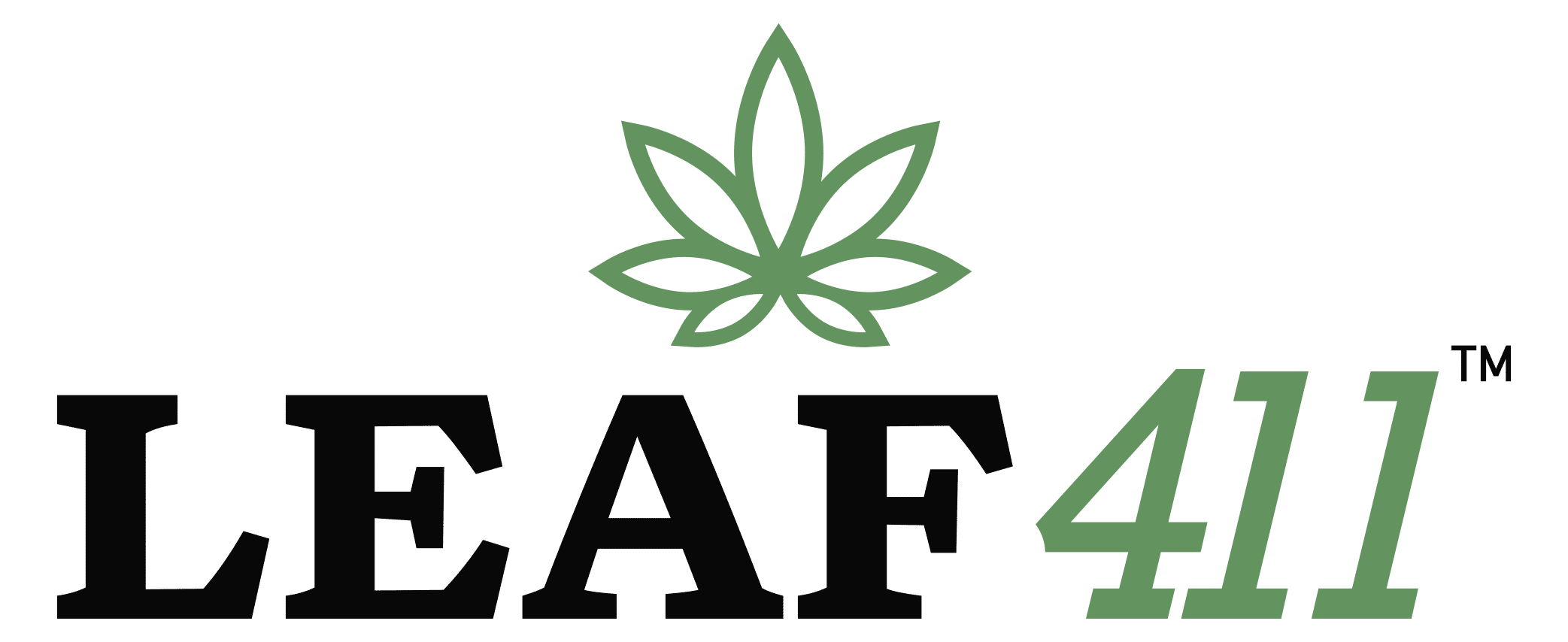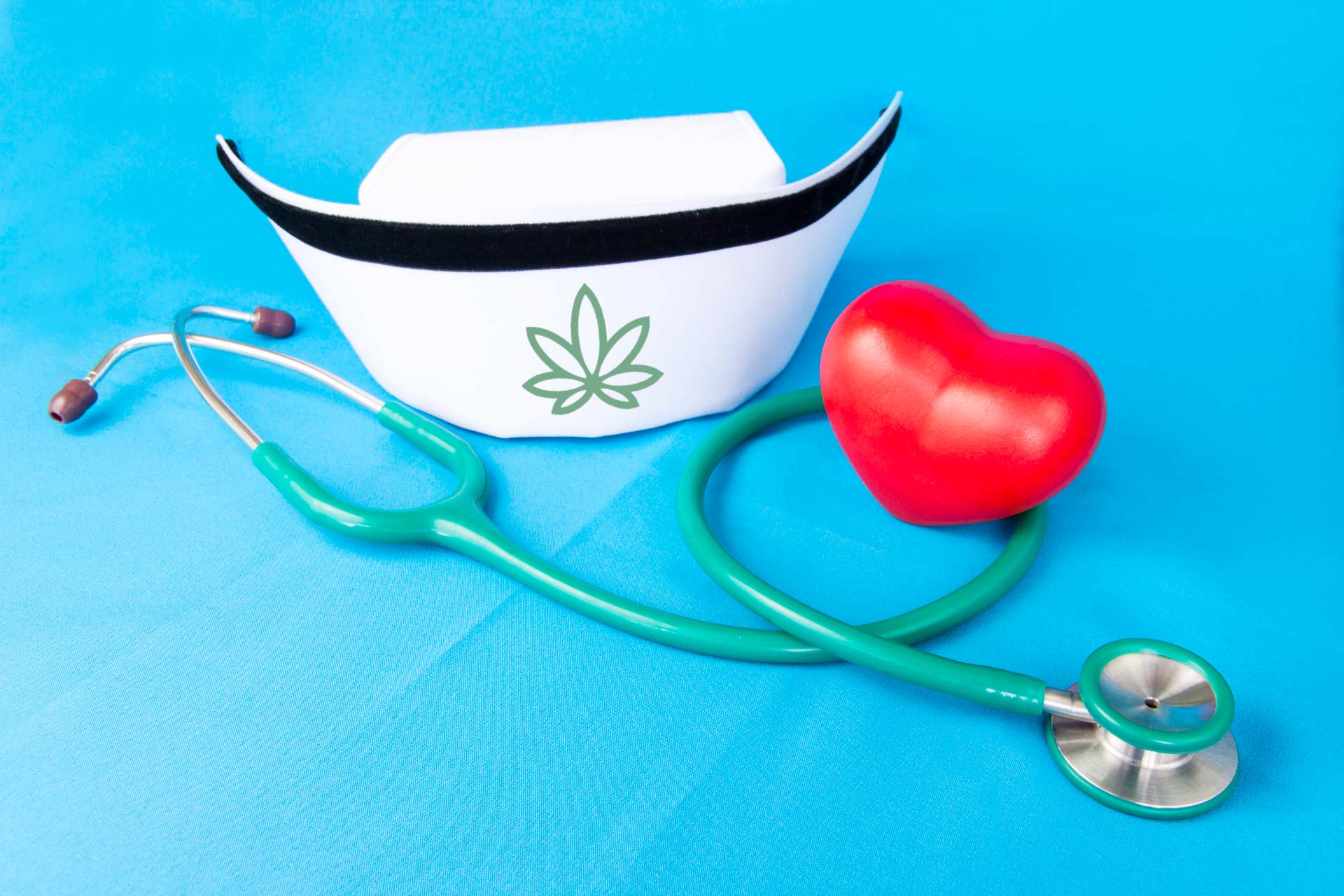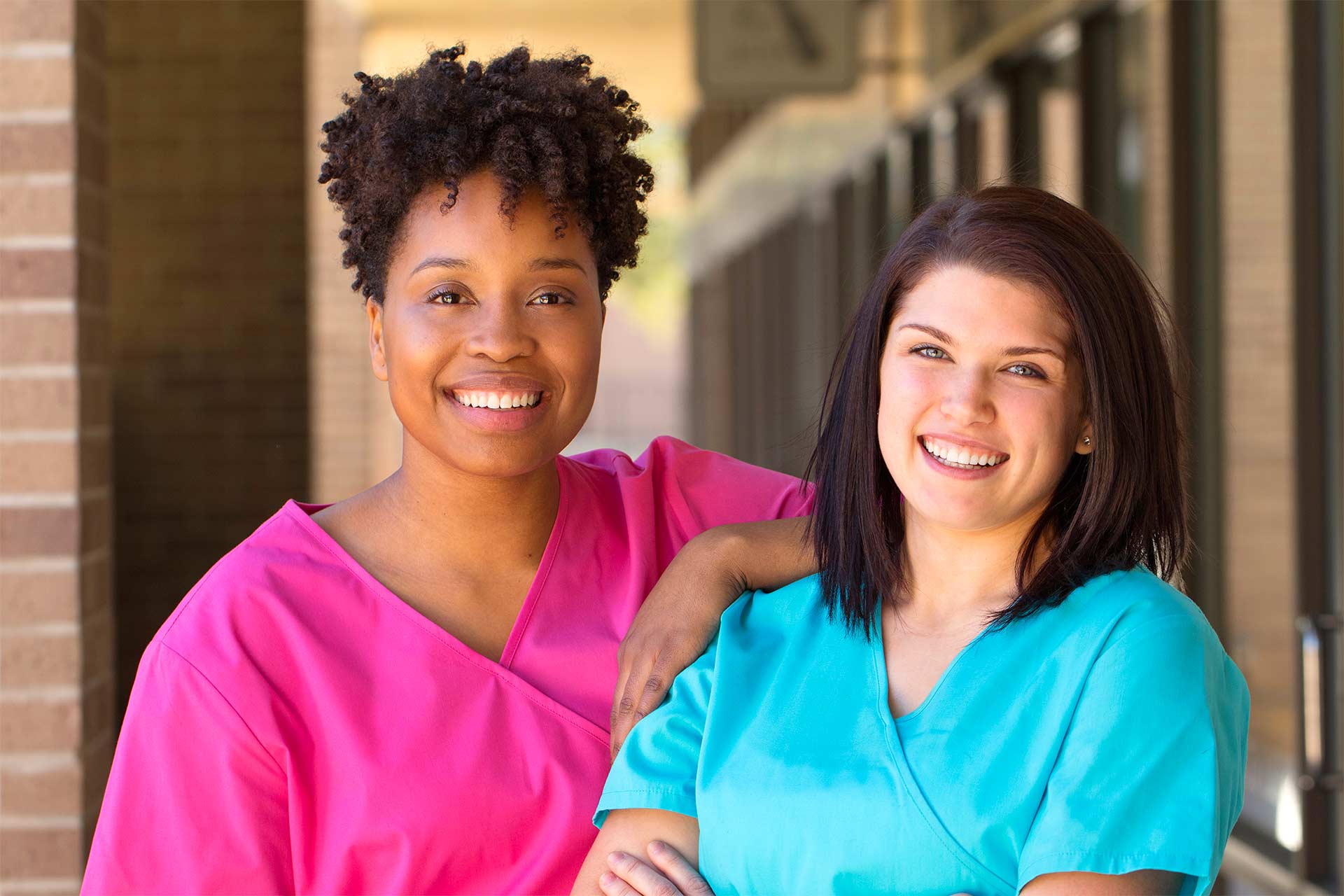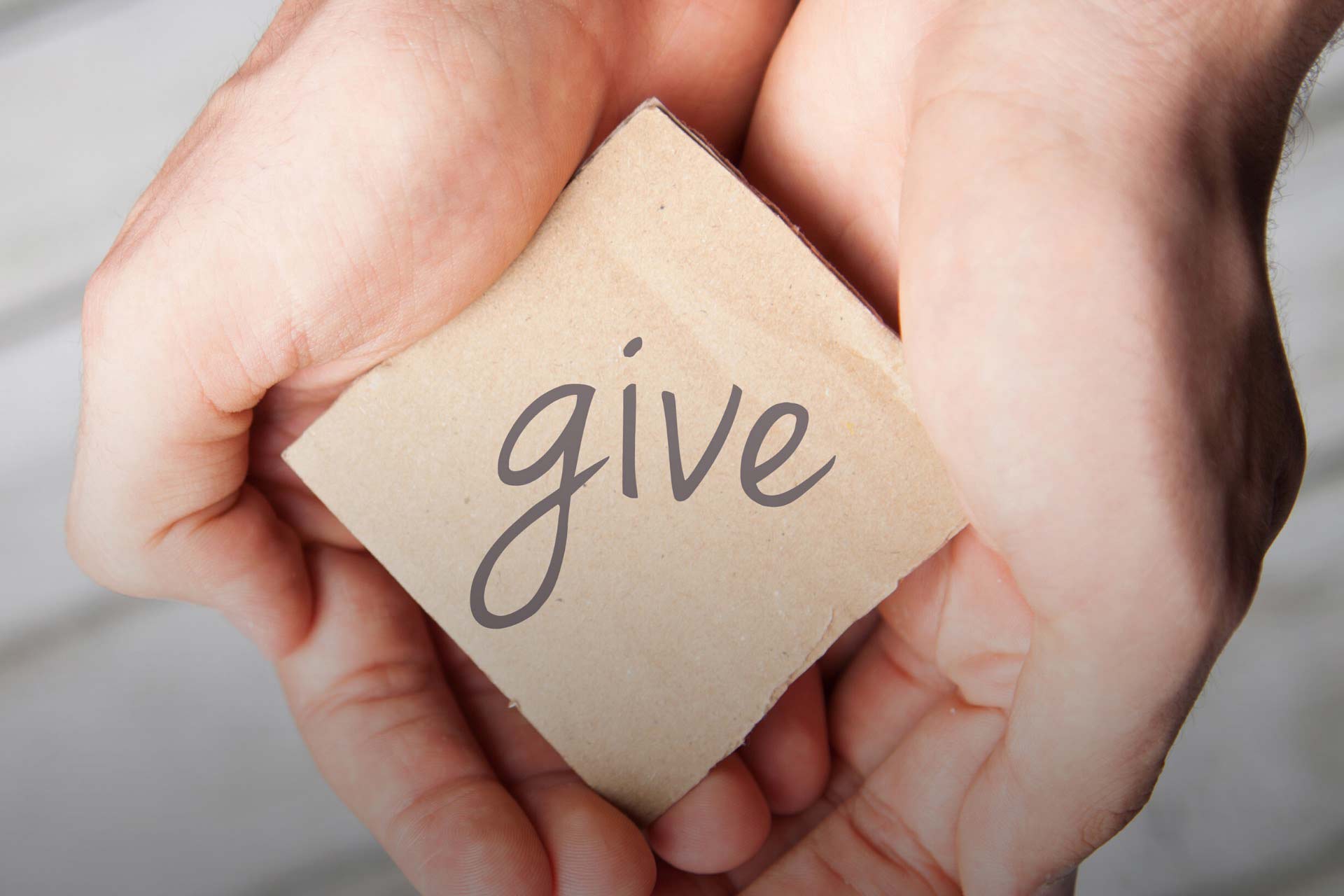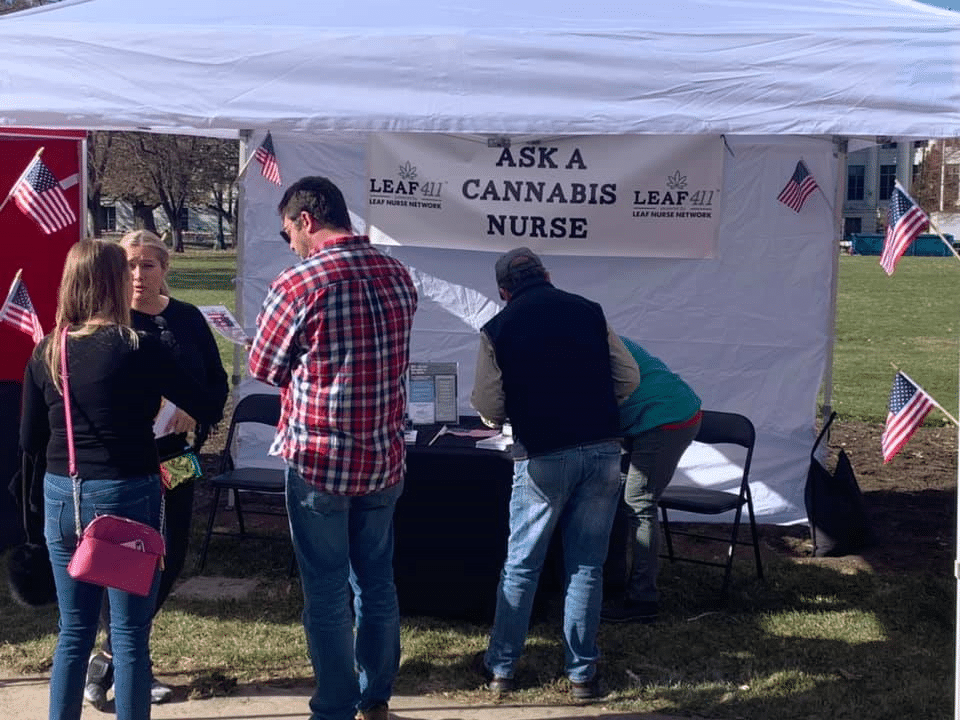Standing in Solidarity With Nurses and Other Frontline Workers
How Leaf411 is Helping With the COVID-19 Response
Medically reviewed by Katherine Golden, RN
Written by Denise Rustning
Back in early January, we planned the month of March to highlight nurses—especially cannabis nurses—on our blog. The World Health Organization (WHO) designated 2020 as the year of the nurse, and we were eager to highlight the incredible work being done by our Leaf nurses as well as other nurses working in the cannabis space.
Little did we know that an emerging novel virus, COVID-19, was poised to rapidly spread across the world, touching every aspect of life.
Now, many of us are doing our part to “flatten the curve” by staying at home and limiting close contact with anyone outside of our immediate household. For our Leaf nurses on the hotline, that means working from home.
Not everyone has the option to work remotely, however.
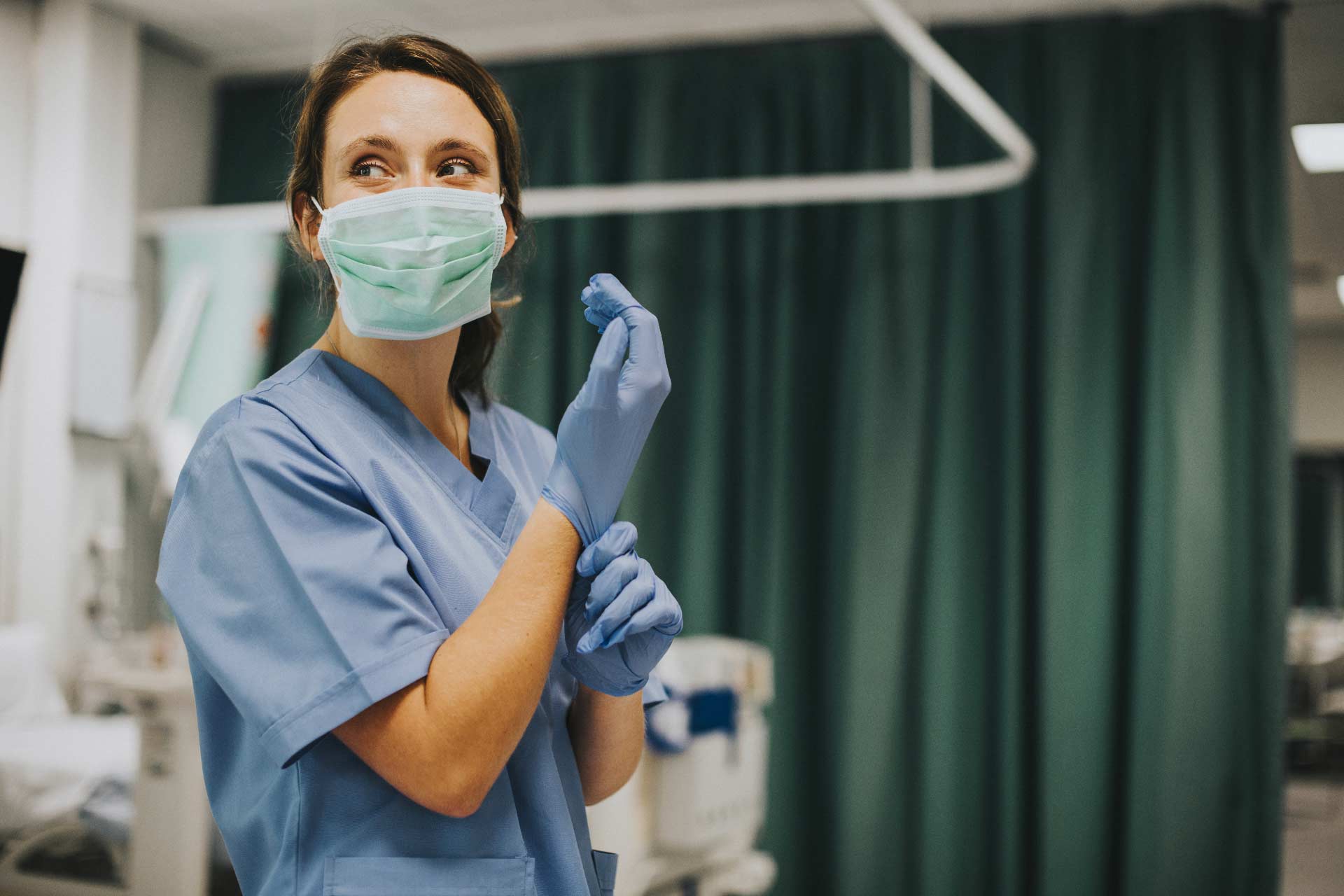
Acknowledging the Work of Nurses and Healthcare Professionals
Today, we’re acknowledging the healthcare professionals, including nurses, who are already on the front lines providing care to COVID-19 patients, often in stressful environments with limited resources. Many other nurses stand ready, waiting in the wings to help as COVID-19 hospitalizations rise.
One of the best ways you can help healthcare workers is by doing your part to flatten the curve. Limit your exposure to other people, even if you feel well.
You can also check out this link for other ideas on supporting nurses who are working long hours on the front lines.
How Leaf411 Hotline Nurses Are Helping to Increase Capacity
Our Leaf nurses are helping to take pressure off the hospitals and primary care clinics by opening up our free Leaf411 hotline (1-844-LEAF411) to your COVID-19 questions. Our nurses’ backgrounds extend far beyond cannabis nursing, with clinical and hospital experience.
We cannot provide diagnoses or order tests—that falls outside of our scope of practice as RNs. However, we can point you to the best resources based on your specific concerns and needs. We’re also able to answer general questions about COVID-19 and provide context for the emerging research and recommendations.
Check out our Leaf library as well for resources like general guidelines for reducing risk of infection as well as Dr. Dave’s input on cannabis and coronavirus.
Of course, we’re still available to answer your cannabis questions, too. With dispensaries switching to online ordering and curbside pickup, consumers will no longer be able to chat with budtenders about different cannabis products.
For example, if you’re switching from smokable cannabis to edibles or tinctures, we can provide guidance to help make that transition as successful as possible.
Recognizing All the Frontline Workers Providing Essential Services
We also want to recognize other non-healthcare frontline workers who keep essential services up and running. This includes employees at grocery stores, distribution centers, gas stations and restaurants, as well as delivery drivers and truck drivers.
States and cities are designating marijuana dispensaries as “essential” as well, recognizing that many people rely on cannabis medicine to manage health conditions like pain, nausea and PTSD. While we’re thrilled about this designation, we also know it means that dispensary employees take on increased risk to maintain our access to safe, legally-compliant cannabis. To help out dispensaries, Leaf411 developed Preparedness Plans which we’re sharing with both member and non-member dispensaries through the end of the month.
We’re Ready to Help With Your Questions
Our Leaf nurses are available to answer your questions, whether you’re a clinician, dispensary representative or member of the public. Call us for FREE at 844-LEAF411 (844-532-3411).
The Leaf411 cannabis nurse hotline provides free, anonymous education and directional support to the general public about the safe use of legal cannabis. We partner with select business members who meet our rigorous standards to extend our education and outreach efforts.
The State of Cannabis Nursing
Medically reviewed by Katherine Golden, RN
Written by Denise Rustning
We often remind you that Leaf411 hotline is staffed by cannabis-trained nurses.
But what exactly does “cannabis-trained nurse” mean? A lot of people have no idea that cannabis nurses even exist!
As part of our series on nurses this month, we’re sharing the state of cannabis nursing in the U.S. Whether you’re a patient or a registered nurse (RN) interested in pursuing cannabis training, you’re sure to learn something new.
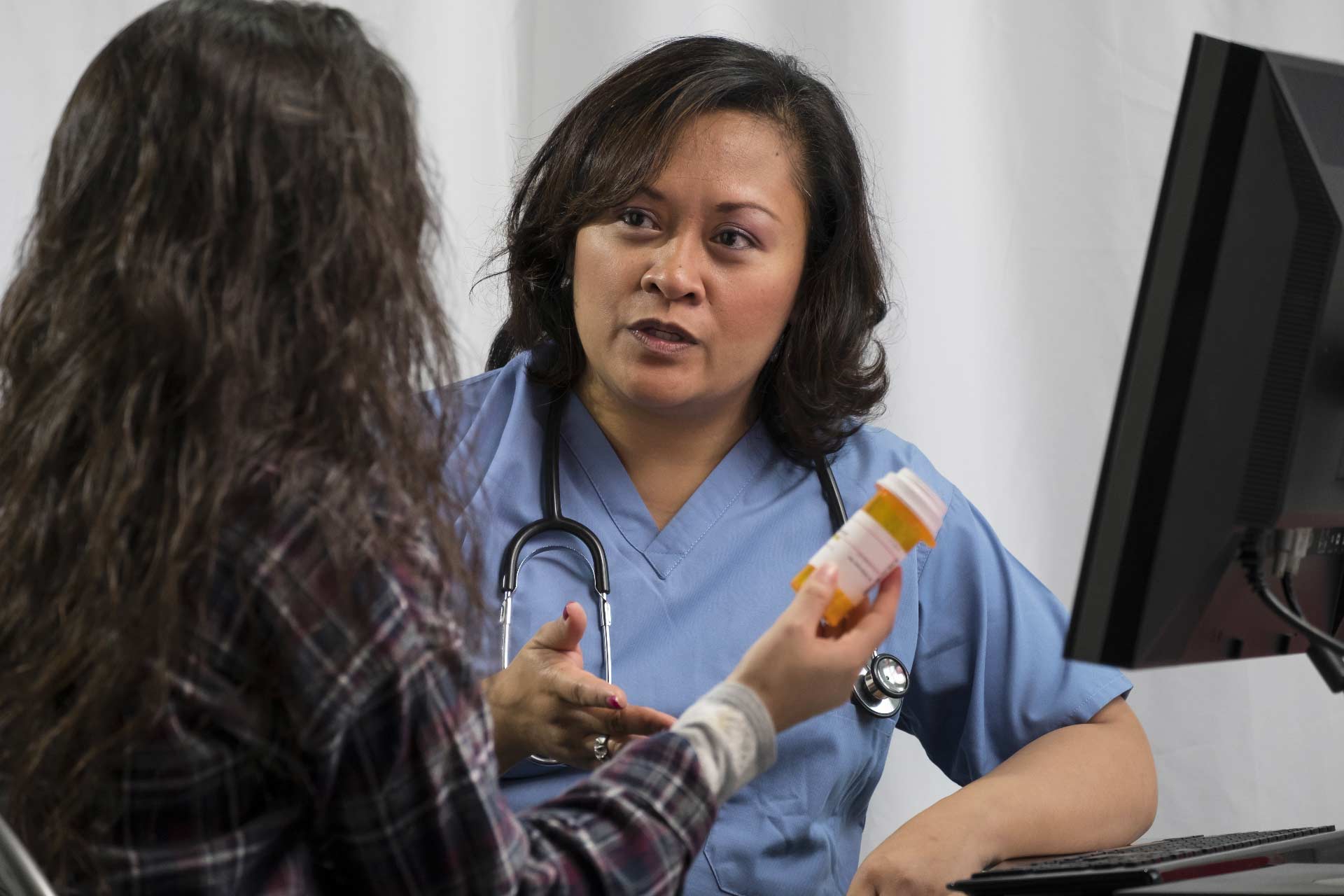
How Cannabis Nurses Help Patients
You’ve likely had a nurse help you with medication-related questions before. Now imagine if a nurse could provide the same type of guidance on using cannabis to manage health conditions.
In fact, cannabis nursing is a thing!
Cannabis nurses complete specialized education on the human endocannabinoid system and cannabis as medicine.
They use this knowledge along with their years of clinical experience to help guide your decisions around using marijuana (cannabis containing >0.3% THC, which is sold legally in dispensaries), or cannabidiol (CBD) hemp products that are federally legal and sold in retail stores and online.
Cannabis nurses can help you save money and time by suggesting general types of products that may work best for your health concern. For example, if you’re dealing with inflammation pain, a cannabis nurse might suggest a specific CBD:THC ratio based on clinical guidelines and evidence.

Where can you find a cannabis-trained nurse? The free Leaf411 hotline is a great place to start!
You can speak to a cannabis-trained RN at no cost via our hotline: 844-LEAF411 (844-532-3411).
The Bigger Picture: Cannabis and The American Nurses Association
The American Nurses Association (ANA) is the largest nursing association in the United States, with over 4 million nurse members. They’ve supported the need for research and evidence-based use of cannabis since 1996!
In their latest position statement (2016), the ANA advocates for reclassification of cannabis so it’s no longer considered a Schedule I controlled substance by the federal government. This change would make clinical research on cannabis’s medicinal benefits much easier.
The ANA also supports development of dosing/recommendation standards, along with legal protections for both patients who use cannabis therapeutically and for the clinicians who discuss or recommend cannabis.
Not all nurses are up-to-date on the potential therapeutic value of cannabis. However, many nurses are hearing more each day from patients who have benefited from using cannabis to manage health conditions. As awareness grows, interest grows as well.
The American Cannabis Nurses Association
The American Cannabis Nurses Association (ACNA) is a national organization dedicated to expanding the knowledge base of endo-cannabinoid therapeutics among nurses. It was formed in 2006 by several nurses who were involved in the Patients Out of Time Fourth National Clinical Conference on Cannabis Therapeutics. These dedicated nurses saw the need for an organization to bring nurses together in a collegial and informational capacity to discuss the growing use of cannabis in medicine.
The ACNA’s ultimate goal is to develop specialty recognition for cannabis nursing, in the same way that other nursing specialties are recognized by the American Nurses Credentialing Center (ANCC), which is a division of the American Nurses Association (ANA).
To date there are over 1,300 nurse members who proudly follow the ACNA’s scope and standards of practice of the emerging role of the cannabis nurse in the United States. The standards of any specialty area of nursing are built upon the foundation of standards of practice expected of all registered nurses (Mariano, 2015) and cannabis nursing is no exception to this rule.
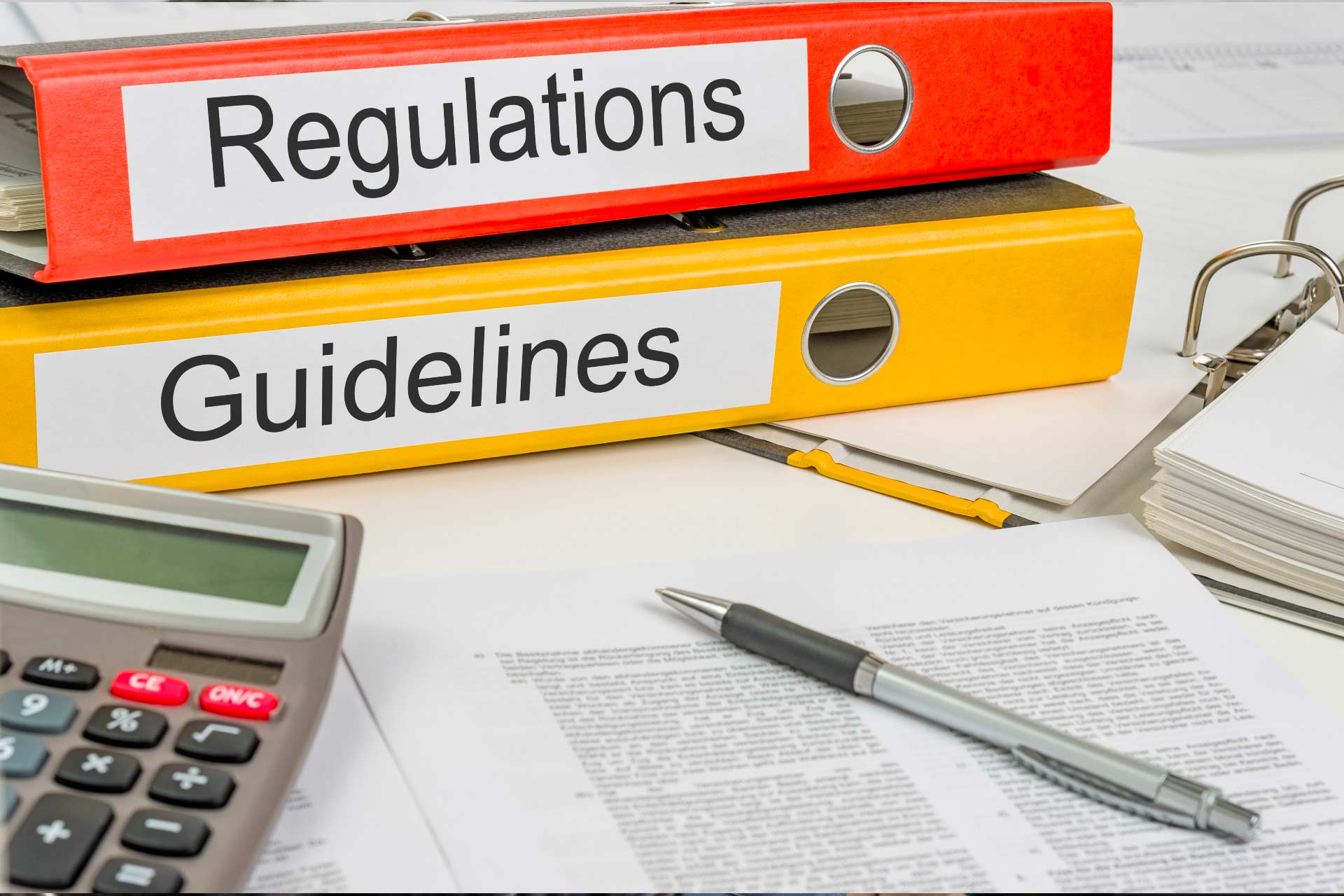
Creating Nursing Guidelines for Medical Marijuana
Professional organizations are also developing guidelines for nurses to use when suggesting CBD hemp or medical marijuana as a treatment option. This work is being undertaken by the National Council of State Boards of Nursing (NCSBN) which developed the National Nursing Guidelines for Medical Marijuana.
The NCSBN guidelines set six principles of essential knowledge for cannabis nurses:
- Working knowledge of the current state of legalization of medical and recreational cannabis use.
- Working knowledge of the jurisdiction’s (state/local) medical marijuana laws and regulations.
- Understanding of the endocannabinoid system and how cannabinoids (THC, CBD and others) interact with the endocannabinoid system receptors.
- Understanding of cannabis pharmacology and the research associated with the medical use of cannabis.
- Capacity to identify safety considerations for patient use of cannabis.
- Ability to approach patients without judgment regarding their choice of treatment or preferences in managing pain or other health symptoms.
We share these guidelines so that you can see how cannabis nursing is actually a serious endeavor, going far beyond the typical budtender or non-clinician’s knowledge!
It makes sense for professional organizations like the NCSBN to develop guidelines for medical marijuana, because several pharmaceutical marijuana products are already on the market, such as cannabidiol-based Epidiolex, as well as several synthetic marijuana drugs designed to reduce nausea, including Marinol and Syndros.
But all cannabis products, synthetic or full-plant, are not created equal, so nurses need to be familiar with the benefits and shortcomings of both.
In addition, clinicians are aware that many of their patients use cannabis either recreationally or for therapeutic purposes. While cannabis has fewer side effects than many pharmaceuticals, there are precautions that patients should be aware of, especially around potential medication interactions.
So how do nurses and other clinicians gain medically-sound knowledge about cannabis?

The Need for Cannabis Education is Growing
As cannabis legalization expands across states, there’s increasing demand for education designed for growers, manufacturers, dispensary workers and medical professionals.
The Medical Cannabis Institute (TMCI) partnered with the ACNA to create the “Medical Cannabis Curriculum for Nurses” which addresses the National Nursing Guidelines for Medical Marijuana. All our Leaf411 hotline nurses have completed the TMCI program.
In addition to our nurses being members of ACNA and having completed TMCI training, Leaf411 has partnered with Radicle Health for additional education. All Leaf411 nurses have completed Radicle Health’s “Cannabis Therapeutics for Nurses/Medical Professionals” course.
Radicle Health and TMCI are helping to lead the way for clinicians to integrate knowledge of the endocannabinoid system and cannabis into their practice. As more nurses and doctors become aware of the professional resources that exist, we anticipate that demand for cannabis clinician training will continue to grow.
Leaf411’s Perspective on the Future of Cannabis Nursing
The nursing profession holds that health is a universal right, which includes access to health care and education concerning the prevention of health issues. In the words of the American Nurses Association, “It is the shared responsibility of professional nursing organizations to speak for nurses collectively in shaping health care and to promulgate change for the improvement of health and health care” (ANA, 2015).
At Leaf411, we believe cannabis nursing is a viable, emerging specialty. With the ongoing support of national organizations like the ANA and ACNA, we can move forward confidently caring for our public as we do in any other specialty.
Interested in becoming a cannabis nurse? We offer tips and resources at this link.
Get Help With Your Cannabis Questions
Our Leaf nurses combine nursing expertise with specialized knowledge of the medicinal benefits of cannabis, providing balanced, research-based information and support. Call us for FREE at 844-LEAF411 (844-532-3411).
The Leaf411 cannabis nurse hotline provides free, anonymous education and directional support to the general public about the safe use of legal cannabis. We partner with select business members who meet our rigorous standards to extend our education and outreach efforts.
Recognizing Leaf411 Nurses During the Year of the Nurse
Medically reviewed by Katherine Golden, RN
Written by Denise Rustning
Have you ever wondered who answers the calls to the Leaf411 hotline?
We’re proud to say that all our hotline calls are answered by fully-licensed registered nurses (RNs) who’ve completed specialized cannabis clinician training. Our nurses are also members of American Cannabis Nurses Association (ACNA).
This month, as part of the Year of the Nurse, we’re focusing on the pioneering nurses working in the cannabis space, including the nurses who answer your calls to the hotline!
Keep reading to hear directly from our nurses and learn more about the ways they can help with your questions.
2020 Is the Year of the Nurse and Midwife
Early in 2019, the World Health Organization (WHO) announced that 2020 would be the Year of the Nurse and Midwife.
In recognition of the Year of the Nurse, we chose the month of March to put a spotlight on the profession that touches the public everyday though our hotline and outreach programs.
Who Do You Trust with Your Health Questions?
For the past 18 years, nurses have topped the list of most trusted professionals in the United States, according to an annual Gallup poll. Nurses’ honesty and high ethical standards are the reasons for those continued high rankings.
We also think that our ability to listen (bedside manner) and how we work together with patients, their loved ones and their entire clinical care team is another reason nurses are held in high regard.
Nervous About Your Cannabis Questions? Here’s What Our Nurses Wish You Knew
We recently asked two of our Leaf nurses to share their perspectives on Leaf411’s hotline and community education events. Note: We’re using anonymized initials for both nurses.*
“We are non-judgmental. We’re here to help and give you as much accurate information as possible.” explains R.W., one of the hotline nurses. “We interpret for doctors every day. We can interpret (the medical cannabis research) for you, too.”
D.J., another of our hotline nurses, adds, “I would invite anyone to look around our website if they don’t feel comfortable speaking with one of us just yet.”
Leaf411 offers several online resources, including our Leaf Library, Member Directory and our blog. We also offer an online chat function that can translate just about any language during our hotline hours, from Tuesday-Saturday 10:00 am-8:00 pm MST. You can find the chat button on the Leaf411.org homepage.

How a Cannabis Nurse’s Advice is Different than a Budtender’s Advice
You may be wondering how a call to the Leaf411 hotline is different from simply researching your question online or asking a budtender for advice on a health issue.
While budtenders have expertise in the products their dispensary carries, they are not clinical providers. In fact, the law prevents budtenders from providing specific medical recommendations to dispensary customers.
On the other hand, our cannabis nurses have the licensing, clinical background and training to provide individualized medical guidance. However, while our nurses understand the science supporting cannabis, they are not experts in the thousands of different products out there on the market.
In other words, our nurses are not here to sell you a specific product or to convince you to try cannabis. Instead, our mission is to provide the education and resources to guide you in making the best choice, based on your health needs and your budget. We are 100% patient and public advocates.

Empowering Patients with Education and Resources Through the Leaf411 Hotline
When someone calls the hotline, “We take things one step at a time,” D.J. explains. “We take time to discuss with the caller what their goals are.”
“For example, if they’re having insomnia, we can discuss a higher THC product which is good for nighttime,” she says. “If they’re having issues with pain throughout the day, we can talk about starting off with a non-intoxicating CBD product in the morning that contains little or no THC.”
“By taking it one step at a time, we can make it not so overwhelming. That way, the caller can go into a dispensary with more confidence,” she says.
“It’s really about empowering the consumer to be able to walk in (a store or dispensary) and know, ‘Here’s what I’m looking for. Here’s what I don’t want, and here’s what I do want,’” D.J. says.
By knowing your goals and understanding which types of products might help most, you can be more confident shopping for marijuana and CBD hemp products, quickly finding something that will be successful for your specific needs.
Our Nurses Are Passionate About Providing Medically-Sound Cannabis Information
R.W. already had over a decade’s worth of experience as an RN when she began studying cannabis’s therapeutic benefits. Like many clinicians, she was motivated to look at the research after seeing family members, friends and patients struggle with pain and treatment-related nausea.
Through her help at Leaf411 community-based events, R.W. sees the value of the work she does.
“I get to see how valuable this service is, and how badly it’s needed. People are able to call and get information (about cannabis) for free. That’s phenomenal!” R.W. says.
She notes that some cannabis clinicians charge upwards of $300 per hour for the same level of service that Leaf411 provides to the public for free.
“Knowing how many people are interested (in cannabis) and experimenting on their own, we can’t leave it to Joe Blow to answer their questions. As wonderful as cannabis is, there are interactions with certain medications and important considerations people need to be aware of. There needs to be someone who can speak to those things,” R.W. says.
As a clinician herself, R.W. knows that many general practitioners are unaware of the research and guidelines supporting medicinal use of cannabis, since it’s not being taught in medical school or traditional nursing programs.
“Unfortunately, you can’t get information from your family doctor because they’re either uneducated (on cannabis) or scared of the ramifications,” she says.
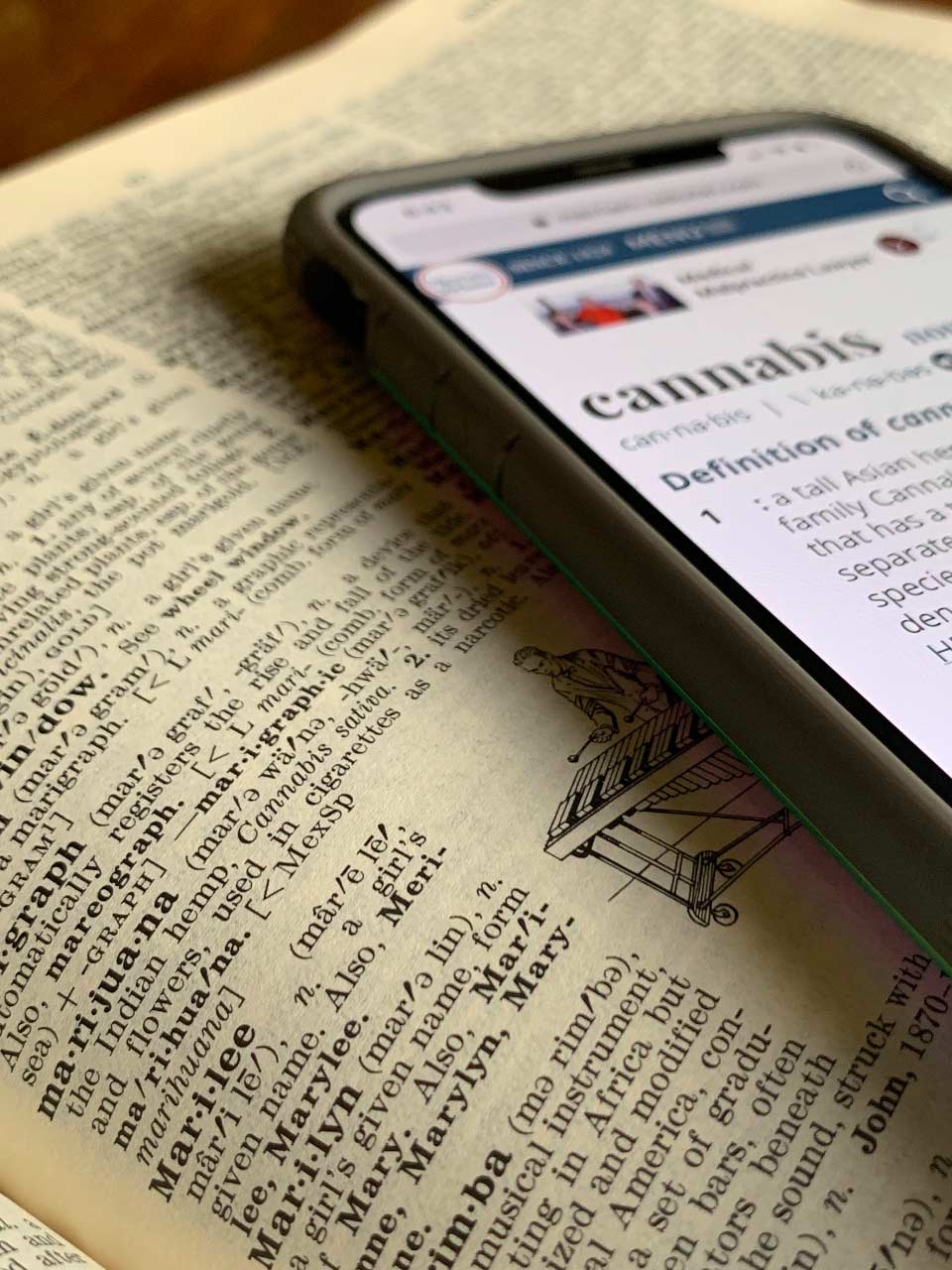
Addressing the Knowledge Gap Around Cannabis
D.J., another of our other Leaf nurses, came to cannabis nursing after first working in cannabis cultivation. As she learned more about the therapeutic benefits of the plant, she gravitated toward the medical field.
“I knew the possibility existed that there was going to be a gap in the public’s knowledge, the medical profession’s knowledge as well as how quickly the industry was moving forward and someone would eventually need to fill in the gaps,” D.J. says.
This need motivated D.J. to return to school to earn a Bachelor in Nursing (BSN) degree, as well as pursue cannabis nurse education.
“I have put a lot of heart and soul into developing myself as a cannabis nurse,” says D.J. “As a nurse, I can see both the anecdotal evidence (hearing from individual patients), and the empirical evidence. I can help explain what that empirical evidence means to patients.”
Serving the Needs of All the Public: Patients and Clinicians
Four years ago, our co-founder, Katherine Golden, RN, began looking into cannabis as a treatment option when helping a family member who was fighting cancer.
“Once I started looking through all the science I could find, through the most reputable resources, I was angry, angry that more wasn’t done to shout this information from the rooftop for all of us medical professionals to take a deeper look at,” Katherine says.
In fact, that moment was the beginning of a journey to provide evidence-based, medically sound information to not only her own family, but also to the general public and to other clinicians.
“We’ve had calls from social workers and other nurses battling medical conditions and seeking plant education themselves, to nutritionists, acupuncturists, physical therapists, and MDs thanking us for providing this type of resource for them to ask us questions that they can then relay the answers back to their patients or clients or send them to us directly,” Katherine says. “When you open your arms and knowledge to allow other colleagues in, you in turn lessen the burden each one of us carries to bed at night.”
When You Call the Leaf411 Hotline, You’ll Get a Cannabis-Trained RN
From the first day, we knew that we wanted the Leaf411 hotline calls to be answered by licensed medical professionals. Registered nurses were the perfect fit.
By staffing our hotline with RNs who have completed additional cannabis education through Radicle Health and The Medical Cannabis Institute, we make sure that you receive consistent, medically-sound guidance based on research. Our nurses use a medical framework for understanding your health concerns and goals and providing guidance.
Whether you are a patient or clinician, we are here to help! Call us at 844-LEAF411 (844-532-3411) or use the chat function on our home page.
*You may be wondering why we use anonymized initials instead of our nurses’ real names in this post.
Here’s why: There can be employment or licensing consequences for nurses and doctors who work in the cannabis space, even though their recommendations are in line with the research and comply with state laws. This will only change once federal laws are updated in line with the growing evidence showing the medicinal benefits of cannabis.
The Leaf411 cannabis nurse hotline provides free, anonymous education and directional support to the general public about the safe use of legal cannabis. We partner with select business members who meet our rigorous standards to extend our education and outreach efforts.
Leaf411 Supporter Spotlight: Dr. David Gordon, MD, 4Pillars Health & Wellness

An integrative medicine perspective on why patients turn to cannabis, the biggest medical cannabis myths, and how to talk to your doctor about cannabis as a treatment option
Medically reviewed by Katherine Golden, RN
Written by Denise Rustning
The Leaf411 cannabis nurse hotline partners with healthcare providers and cannabis industry members to expand our education outreach and increase awareness around the safe use of legal cannabis. We’re proud to periodically spotlight our supporters here.
David Gordon, MD, founder of 4Pillars Health & Wellness, was an early supporter of Leaf411, and serves as one of our Advisory Board members. Dr. Gordon, better known as “Dr. Dave,” is the creator of the 4×4 Lifestyle Plan, offering patients an alternative to conventional medical treatment. His approach addresses food, movement, relaxation, and community to help patients transform their lives.
At Leaf411, we take our ethos (kindness, professionalism and caller loyalty) very seriously. Dr. Dave fits in with our organization so perfectly, from his devotion to his profession to his loyalty to his patients. We are honored to have Dave be a member of our Advisory Board and give him this spotlight.
Leaf 411 COO Jennifer Axcell recently sat down with Dr. Dave learn more about what brings patients to cannabis, the questions and misconceptions he hears most often, and what he wishes other providers knew when it comes to advising patients on how to use cannabis.
Q: When do people typically come to you? How many other treatment options have they tried beforehand?
People have definitely already tried a lot of other options. This is true not only with cannabis, but also with an integrative approach in general.
In the cannabis space specifically, far and away chronic pain is the most common thing that we see. These are people who are still in pain despite them getting opioids or other medications. They’re still in pain despite going to physical therapy. They’re still in pain despite having surgeries and injections. They’re still suffering.
They’re definitely also tired of the risk and side effects of some of the other therapies when it comes to chronic pain. Certainly opioids—we hear about that a lot. But the risks and side effects of less toxic pain medications are underappreciated, whether it’s the ibuprofen class of meds or even Tylenol for that matter.
The biggest thing for people with chronic pain is that they’re not getting better. They’re not trying to avoid medicine. They’re really just trying to get relief that they haven’t had with other things.
If opioids were allowing people with chronic pain to feel great and be pain-free with high quality of life, these people wouldn’t be searching out cannabis.
We also see patients for lot of other conditions that standard medicines don’t treat well, be it sleep, mood disorders, or psychological symptoms. These are things that our current meds don’t do a very good job with.
Q: Is there a certain type of person who’s more likely to come to you? Is it the senior group, because they have more chronic conditions? Younger people who might be more open to cannabis? Or does it run the gamut?
The people who come to me really run the gamut, but they fall into a few categories.
A lot of people have figured out through experience that cannabis works better for them than other things. They’ve done the research and they know it’s safe. This is the average healthy person who has pain from sports injuries. It’s also the waiter or waitress or auto mechanic who comes home exhausted with pain and stiffness from work. They just want something to help their pain, help them relax and get to sleep easier. They don’t want to take a bunch of ibuprofen and Benadryl to go to sleep. They find that with a little bit of cannabis, they can relax, their pain is gone, and they fall asleep easily. This population just uses a small amount of cannabis in the evening. They know it’s more effective and safer than a lot of alternatives.
There’s also a big group of patients who have been dealing with various issues for years, and who are just sick of all the side effects and drug interactions. They want safer options. They might have been told they can’t take a variety of medications, or they’ve had side effects. These patients are looking for something they haven’t tried before because they have low quality of life. This is typically the senior population.
There’s a third patient group, the chronic pain population. The chronic pain may be related to an injury from a car accident or disc injury, or it could be non-injury related. Some patients have central pain issues like fibromyalgia, irritable bowel, irritable bowel syndrome, chronic pelvic pain, these kind of nebulous pain syndromes. That’s where you get the patient who says, “I haven’t had a good day in 25 years no matter how many meds I’ve taken.”
Q: What are the top three questions about cannabis that you get from patients?
These days, one of the top patient questions is about the different chemicals in cannabis, specifically THC and CBD. What is CBD? What is THC? What’s the difference?
Another common question is how best to administer cannabis, whether you’re talking about inhaling or eating or topical. People always want to know what’s the best.
Also, for patients who are new to cannabis, their questions involve safety, side effects, and interactions with other medications.
Q: What are some of the biggest misconceptions you hear from people, when it comes to using cannabis for health purposes?
New users often assume that using cannabis means that they’re going to be so high that they can’t function. That’s far and away the biggest misconception. I might explain to them that we’re going to use certain cannabis compounds that don’t cause any intoxication. Even if we’re using THC, the one compound that can cause intoxication, we might be starting it at a dose that they’ll barely notice or not notice it at all.
Also, a lot of the cannabis propaganda that people have heard over time is just wrong. The perfect example is when someone asks, “Is cannabis going to cause me to lose my brain cells?” Or they are worried it will cause early-onset Alzheimer’s. No, actually, the science shows that cannabis is probably going to protect your brain. We know that both the cannabis THC and CBD compounds protect brain cells. And there’s good evidence suggesting that they may reduce the risk of dementia.
Another misconception I hear is that cannabis is super-addictive. People just assume it’s a highly dangerous, addictive drug like heroin or cocaine, based on the propaganda they’ve heard. I share the actual information that’s out there in the research showing this propaganda is not true.
People also tell me, “My doctor told me there’s no research. There’s no science showing cannabis works.” (Dr. Dave responds to this misconception below.)
There are a lot of myths about cannabis—the list goes on. But those are some of the main ones that people come in with preconceptions about.
Q: At Leaf411, one way we’re answering that concern about research is with our online Leaf Library. How do you answer questions about research, beyond saying “trust me”?
My response varies between patients based on how they learn and what they want to know. We have different levels of research. You know, we have research that’s done in the lab that shows how and why cannabis works. And then we have research in animals showing its benefit. We also have research in humans, but the research in humans often isn’t as robust as we have for other medications because of the restrictions.
But I also remind people that most of what happens in a regular conventional medical office is also not supported by gold standard research using large-scale double-blind trials. Most conventional providers’ practice is based observational studies or recommendations, the exact same kind of research we have for cannabis, as well.
Evidence-based medicine is not just picking one study and saying, “Here’s the evidence. This is what we do.” Evidence-based medicine is combining the best research and science we have with our patients’ experiences, and with physicians’ experiences. And using those three aspects to make decisions that are best for a given patient. That is true evidence-based medicine.
Q: From the patient perspective, when is the best time for someone to talk to a cannabis physician?
I am a little biased, but I think early on is best. In a perfect world, everybody would get guidance, even people who are knowledgeable about cannabis.
When I see a patient who tells me they’ve used cannabis for 25 years, there’s still information that I can provide to really optimize their treatment.
When we’re talking about the person who is new to cannabis, I think early is best, ideally before they use it or within the first month.
My biggest concern with a new cannabis patient is that they’ll have a negative experience early on due to the product they tried or using too much.
It’s not dangerous but they felt uncomfortable. That creates a negative association. We know in all treatments, someone’s initial experiences play a huge role. We want to avoid negative experiences early on, because that makes future treatment more difficult.
I think all people need some education early on how to use appropriate dosing and appropriate products to minimize negative experiences. And a lot of that’s just starting really low. I don’t think the industry facilitates that in the way they package and label products, and I don’t think budtenders facilitate that. Most people working in dispensaries are cannabis users, and probably have higher tolerance than someone who is new to cannabis. They may not understand low dose concepts like building up the dose slowly.
I don’t think someone necessarily has to see a doctor, but they should get guidance on the concept of starting low. This could come from an educational resource like Leaf411.
Obviously, seeing a cannabis doctor can increase the likelihood that the first thing the person tries will be effective. Talking to any knowledgeable healthcare provider makes it more likely that someone will find the most effective dose or product sooner.
Q: How do you guide patients to talk to their primary care doctor, knowing that there is resistance and lack of knowledge among some providers?
I recommend that patients start by sharing their personal feelings and goals.
Don’t just say, “I’m using cannabis, deal with it.”
Instead, maybe say, “Hey, I’ve been really struggling with this. You know that we’ve tried many things and I haven’t been getting optimal results. I’ve tried this new thing. It’s really helping me. I’d really like to stick with this because I’m feeling better.”
If the doctor hears the patient articulate that they’re doing well and they’re achieving their goals, but they’re not willing to support that—I mean, I usually tell patients that’s the time you need to think about getting a new doctor.
If a doctor doesn’t know something and says, “Okay, I’d love to learn more. How can I support you?” that’s okay. They don’t need to be a cannabis expert.
I wish that every doctor understood the low dose concept. If a patient said, “I want to try cannabis,” the doctor’s response would be, “I don’t know anything. But all I know is that you start with one or two milligrams and go up every few days.” If every doctor just knew that, that would be outstanding.
Q: Many people in the cannabis space have a story. What’s yours?
My story is not so much a personal story. For me, it’s really just seeing what worked with patients and what didn’t work.
I always wanted to be a doctor and enjoyed the sciences, and started on a pretty straight path going to medical school. I had no exposure to integrative medicine or anything beyond standard medicine throughout my training.
I started my own practice right out of residency, a general internal medicine, primary care practice. Paying attention to patients and how they were doing, I realized what I was taught didn’t work very well. I was doling out medicines left and right, and yet people were not getting better. Even if their numbers got better, I would see them keep coming in with side effects and new issues.
Within the first year or two of practice, I decided that I needed better tools. I started learning more about nutrition and root causes of health issues, and expanded into integrative practice where I had a bigger toolbox. I partnered with patients, spending more time with them to find out what their triggers were. Then, I incorporated new tools, using other practitioners, chiropractors, psychologists, physical therapists, and acupuncturists. I also taught myself more about nutrition and incorporated that piece as well. Patients really got better using those modalities.
Once cannabis was legalized in Colorado, I immediately had patients coming to me and saying, “Oh, I’ve already been using cannabis for my pain,” or “I’ve been using cannabis for sleep,” or for other conditions. Patients asked, “Will you authorize my medical card?” These were patients I knew and trusted, and so I signed off on that.
After hearing similar stories from many patients, I thought I should try to learn about cannabis beyond just signing off on it. When I looked into things, I was blown away by how much information was already out there about the endocannabinoid system and cannabis. At the time, there were a few decades of research showing what cannabis does, why it works, and how people were benefiting from it.
I saw this firsthand in my practice, as well. When patients were struggling, I looked at using cannabis as a bridge to help them get better so we could implement other dietary and lifestyle measures. Cannabis was just one part of my toolbox.
My story has really been focused on what’s best for the patient. That’s what led me to general integrative medicine, and to cannabis specifically.
This interview has been edited for length and clarity.
For More Information
You can learn more about Dr. Dave and 4Pillars Health & Wellness here. Dr. Dave provides in-person, phone, and video consults for people seeking guidance and education on cannabis as well as other integrative health practices to improve overall health. He also offers office appointments for Colorado residents seeking a medical marijuana card.
The Leaf411 cannabis nurse hotline is proud to have supporters like Dr. Dave. Our nurse team depends on our medical advisors to take our callers to the next level of care that is outside our scope of practice and Dr. Dave can do just that. He takes in-person, phone, and video consultations from all over the country. We are proud to list his practice as a resource for our callers.
We recognize that not everyone may have the resources to visit a cannabis doctor. That’s a big reason why we set up our hotline as a free service available to anyone, anywhere, regardless of their insurance coverage or ability to pay.
Do you have questions about using cannabis for a health concern?
Would you like to learn more about the low dose concept?
Call 844-LEAF411 (844-532-3411) for answers from our cannabis-trained registered nurses.
Support Leaf411 on Giving Tuesday
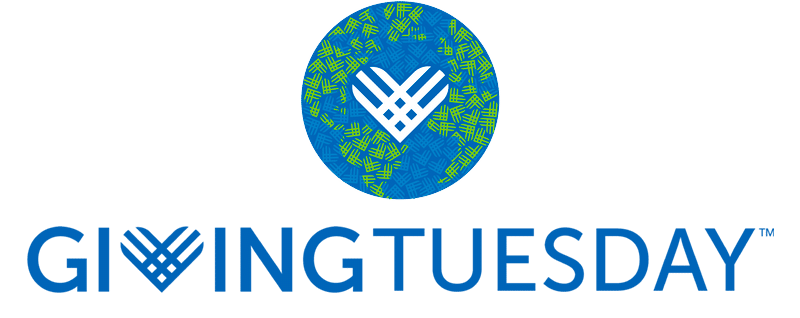
Medically reviewed by Katherine Golden, RN
Written by Denise Rustning
The 2018 Farm Bill turns one year old on December 20, 2019. This federal law fully legalized hemp cultivation and sales, making cannabidiol/CBD products widely available online and in retail stores.
Now, everyone and their grandma are trying out hemp products. And with legal medical and recreational cannabis expanding to additional states, many people are also curious about THC-based products.
But what happens when people have questions?
Federal and state laws don’t fully address the need for consumer education on safe, effective cannabis use. In fact, hemp and cannabis producers, manufacturers, retailers and dispensaries are prohibited from making specific health claims about their products.
That’s where we come in. Leaf411 nurses have the professional medical background and training to provide balanced education and support for safe, legal cannabis use.
Note: Our Giving Tuesday fundraiser is set up in Facebook. They’re matching the first $7 million in donations made via the platform on Dec 3. Contribute now to boost your donation’s impact!
You may also donate via PayPal. Contributions made via PayPal don’t count toward the Facebook Giving Tuesday challenge; however, we appreciate them just as much!
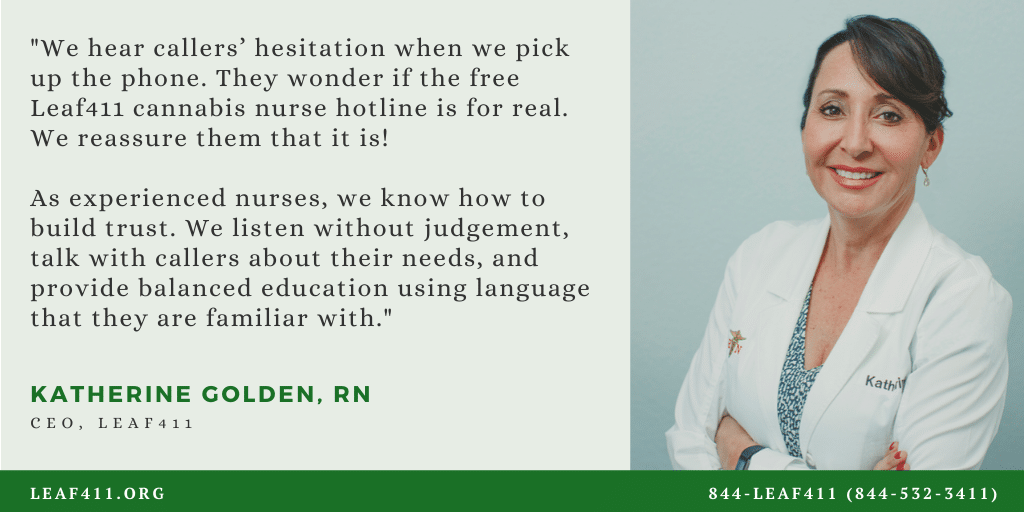
Your contribution supports our goals to:
- Increase our hotline coverage while maintaining our commitment to pay our cannabis-trained nurses a living wage.
- Increase our community-based outreach. We know that not everyone is online. That’s why we launched the free Leaf411 hotline, and why we’re also focused on in-person events to meet people where they are at.
- Strengthen our nonprofit’s foundation of support. As we grow, new doors will open. This includes our ability to participate in future Colorado Gives events. However, we need your help to get there! Colorado Gives and many grant programs require that nonprofits show existing support to qualify. Every dollar you donate today helps us unlock new funding sources.
Are you able to help on Giving Tuesday to support Leaf411’s mission? Donate via our Facebook fundraiser.
Why Leaf411 is a Needed Resource
Manufacturers and retailers are prohibited by law from talking about how CBD and cannabis may impact specific health conditions.
Also, many doctors say they are unprepared to answer patient questions about medical marijuana, despite the majority of those doctors also saying they believed cannabis can serve a legitimate medical purpose for patients, according to a 2019 Mayo Clinic survey. The reality is that less than 10% of medical schools even address medical marijuana, leaving many new doctors unable to answer questions. And older doctors likely don’t have any cannabis education at all.
The Leaf411 hotline provides an important service with cannabis-trained registered nurses ready to answer your questions at no cost to you.
Our hotline nurses are members of the American Cannabis Nurses Association and have completed specialized training on cannabis through Radicle Health. We stay up to date on the latest research to ensure that the information we provide reflects best practice. We also regularly connect with other cannabis clinicians to share knowledge and resources.
Our nurses are committed to Leaf411’s mission to provide callers with balanced education and directional support for safe, legal cannabis use. We are deeply grateful for their dedication and are committed to paying a living wage for their work.
Help support our nurses. Donate to our Facebook fundraiser.
Meeting the Community Where They Are At
Who uses cannabis? While market research shows that younger adults make up the majority of consumers, older adults represent one of the fastest growing groups of cannabis users. It’s no surprise, given the potential benefits of cannabis. However, many seniors struggle to find sound medical guidance for using cannabis, including the best delivery method and dosage, as well as benefits and risks that are specific to older adults.
Our cannabis-trained nurses have the medical background to answer seniors’ questions, but first we need to let them know we’re available.

Older adults are not online in the same way younger people are. We know the most effective way to reach out to this population is by participating in community-based events where we can introduce ourselves, build trust and awareness of the free Leaf411 hotline service.
Our focus isn’t limited to older adults, either. We’ve also partnered with our founding members and veteran’s organizations on outreach events for military veterans. Veterans face unique challenges in accessing medical advice for safe, therapeutic cannabis use, with VA physicians essentially prohibited from discussing cannabis as a treatment option. Through partnering with organizations like Veterans for Natural Rights, we’ve built a deeper understanding of veterans’ unique needs, and are honored to provide support to those who sacrificed for our country.
We have more community outreach planned for the coming year, but we need your support to make it happen.
Can you help us reach more veterans, seniors, and others who are seeking personalized information on safe cannabis use? Donate via our Facebook fundraiser.
We are thrilled to participate in the national Giving Tuesday event on December 3, as a Colorado 501(c)(3) nonprofit. Every dollar raised today helps unlock new funding sources in the future.
The annual Colorado Gives event takes place on December 10, a week after Giving Tuesday. Did you know that in order to participate in Colorado Gives, a nonprofit must show $50,000 in annual revenue?
As a newly launched nonprofit, we’re making good progress on qualifying for next year’s Colorado Gives—but we need your help to get us over the finish line! Contribute today via our Facebook fundraiser.
Qualifying for future Colorado Gives events is important. Our visibility to potential donors and potential callers will increase by participating in the Colorado Gives event. We’ll also be eligible for a portion of the $1.5 million incentive fund shared between participating Colorado Gives nonprofits.
By demonstrating strong community support, we’ll qualify for other grants and in-kind donations as well.
Any amount you give, no matter what that is, moves us closer to our goals. Please contribute to the Leaf411 hotline today. Donate via our Facebook fundraiser where your contribution may be matched, amplifying its impact!.
You may also donate via PayPal. Contributions made via PayPal don’t count toward the Facebook Giving Tuesday challenge; however, they are appreciated just as much!
Welcome to the Leaf411™ Blog
The Leaf411 Cannabis Nurse hotline is a FREE non-profit hotline available to all Colorado residents. We provide easily accessible cannabis education and support from trained medical professionals. When you call our free hotline, you’ll receive individualized answers to your questions. Our hotline phone number is: 1-844-LEAF411 (1-844-532-3411).
We also realize you might not have a specific question yet, or you may only be looking for general information. Our Leaf411 Blog is written for you. We provide information on trusted resources, research, cannabis news, and how-to guides for safely using cannabis and hemp products.
What You’ll Find on Our Cannabis Blog
We’re passionate about providing high-quality balanced information about legal cannabis use. Our blog provides an outlet for us to share cannabis resources to help you on your journey, whether you are new to cannabis or are already using cannabis recreationally or medically.
Not a cannabis user? We still have you covered! Our blog covers issues that impact all of us. Recreational and medical marijuanalegalization continues to spread across the country, and CBD and hemp products have earned their own spot in retail stores.Leaf411 is committed to providing balanced information to help you sort through the products that your patients, family members or friends may be talking about.
The People Behind the Leaf411 Cannabis Nurse Hotline
Our commitment is driven by firsthand experience after seeing the healing power of cannabis in our own lives and in the clinical setting. All of our hotline nurses are members of the American Cannabis Nurses Association (ACNA) and have completed specialized training. You can learn more about our nurses here.
Leaf411’s Founding Members
You’ll notice a growing list of founding members in our Member Directory. Our founding members support our nonprofit’s mission to provide free clinician-based cannabis education to consumers and industry partners. We screen all potential member businesses to ensure they meet our standards. Watch for future blog posts featuring our founding members’ perspectives on cannabis consumers’ needs.
Leaf411’s Cannabis Resource Library
We also offer a robust online resource library where you’ll find FAQs, disease-specific articles, information on how to get a Colorado medical marijuana card, and links to crisis lines and support groups. We always welcome your calls as well!
Sharing Our Cannabis Success Stories
Every day, more people are seeking out cannabis and hemp/CBD products to find relief and improve wellness. While you’ll certainly find those benefits within the space, you’ll also find an incredible community made up of people who have experienced the power of plant-based medicine. By sharing our stories, we help to remove the stigma and outdated stereotypes surrounding cannabis and hemp.
Katherine Golden, RN, Leaf411 co-founder’s story:
My journey in cannabis started 3 years ago when a close family member was suddenly diagnosed with Stage 4 lung cancer. He was in his 40s with kids in high school, and he’d never smoked. The doctors gave him 2-5 years to live. My family was completely devastated.
As a nurse and the medical professional in the family, I immediately researched alternative and less well-known treatment options to supplement my family member’s care. I began looking into the cannabis plant mainly to see how valid the research really was. At the time, I was extremely judgmental about cannabis. However, when I started searching well-known medical research sites like PubMed and ScienceDirect, I found tons of published research supporting the benefits of cannabis.
I’m happy to say that my family member is going strong 3 years since his cancer diagnosis. We don’t know exactly how the supplemental use of cannabis with his current regimen has helped reduce his tumors. However, everyone—including his non-cannabis physician—is watching his progress closely!
My personal experience led me to work as a lead nurse in a cannabis clinician’s office in Boulder, Colorado, where I met Jennifer, Leaf411’s co-founder. Every day, we saw patients who had benefited from cannabis. However, I realized not everyone had access to cannabis-trained medical professionals. I decided to dedicate myself full-time to my dream of making cannabis information from trained medical professionals readily available to everyone through the Leaf411 hotline. As a nurse, I can assure you that no question is too silly or strange when it comes to cannabis and your health. Give us a call today for help with your cannabis questions.
Jennifer Axcell, Leaf411 co-founder’s story:
I still remember when I started out as a cannabis patient. At the time, my primary care physician had happily prescribed me 13 different narcotics and opiates for chronic pain. However, these medications came with troublesome side effects and risks. When I asked my doctor about using cannabis instead, his answer was, “I don’t know anything about cannabis, I don’t want to know anything about cannabis, it’s federally illegal.” I didn’t know where to go to get answers to my questions about how to use cannabis to treat my chronic pain and PTSD. I was frustrated and confused, but determined to go down this path, even without help from a medical professional.
Three years later, cannabis has undoubtedly changed my life for the better. I also saw how cannabis improved other peoples’ lives while working with Katherine at the cannabis clinician’s office in Boulder, Colorado. Time and time again we saw patients leave with more questions than they came with. For new patients especially, it’s hard to know what questions to ask if you know very little about cannabis. The office we worked at did their best, but we knew much more could be done. After a lot of hard work, we’re thrilled to launch Leaf411 to provide the resource I wish I’d had when I first decided to look into cannabis as medicine.
Check back often as we regularly update our blog with the latest information and resources for the safe use of legal cannabis (marijuana and hemp).
